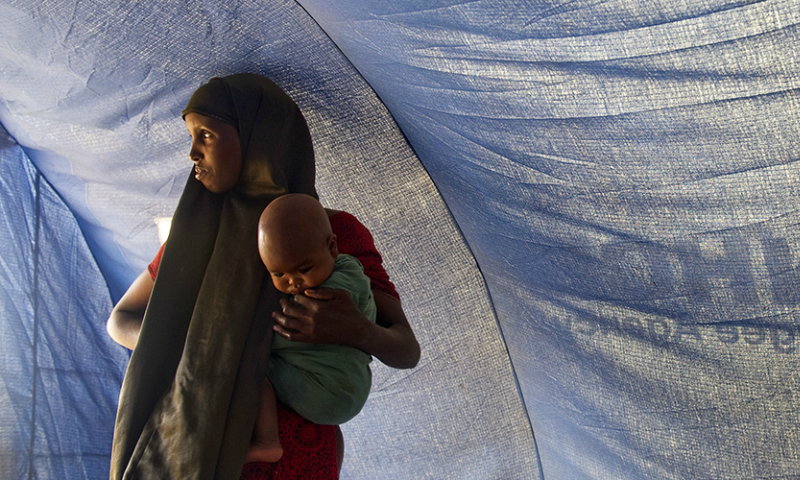
Over the past year, 60 million people have been forced from their homes worldwide due to conflict, human rights deprivations, and economic hardship. As a result, the international community is facing the biggest refugee and migration crisis since the Second World War.
Children made up an astonishing 51 per cent of the world’s refugees in 2015, with half of these missing out on primary education. Girls are almost 2.5 times more likely to be out of school in countries affected by conflict, and studies show that girls are less likely to have access to education in situations of displacement than boys.
An estimated 20 million people with disabilities are currently affected by humanitarian crises, according to Handicap International. Often marginalised in their communities of origin, people with disabilities can also find it more difficult than people without disabilities to flee affected areas and access humanitarian aid. The 2030 Agenda for Sustainable Development, which aims to leave no one behind, has placed an obligation on all to reach those in situations of conflict, disasters, vulnerability and risk.
In his message for World Refugee Day, observed on June 20, Secretary-General Ban Ki-moon highlighted the situation of forcibly displaced people around the world. “World Refugee Day is a moment for taking stock of the devastating impact of war and persecution on the lives of those forced to flee and honouring their courage and resilience,” said Mr. Ban. “It is also a moment for paying tribute to the communities and States that receive and host them, often in remote border regions affected by poverty, instability and underdevelopment, and beyond the gaze of international attention — 9 out of 10 refugees are today living in poor and middle-income countries close to situations of conflict.”
Nearly 1.7 million Syrian refugees registered in Jordan and Lebanon live in miserable conditions, often unable to afford their basics needs including sufficient food, clothes and medicine. In Jordan alone, nine out of every ten registered refugees are either already defined as living in poverty, or will be soon. According to a 2015 ILO survey only 51 per cent of Syrian men (and 7 per cent of women) living outside refugee camps participate in the Jordanian labour market with an unemployment rate as high as 57 per cent.
Taking note of divisive political rhetoric on asylum and migration issues, rising xenophobia, and restrictions on access to asylum, Mr. Ban called on world leaders to respond to the crisis by building on and amplifying the outpouring of compassion and solidarity. “Our responses to refugees must be grounded in our shared values of responsibility sharing, non-discrimination and human rights, and in international refugee law, including the principle of non-refoulement,” he stressed.
To gather public support for the growing number of families forced to flee conflict and persecution worldwide, the UN Refugee Agency (UNHCR) launched its #WithRefugees petition to send a message to governments that they must work together and do their fair share for refugees. The petition will be delivered to UN headquarters in New York ahead of the High Level Meeting on Refugees and Migrants on September 19. It asks governments to ensure every refugee child gets an education, every refugee family has somewhere safe to live, and every refugee can work or learn new skills to make a positive contribution to their community.
To learn more about the day, please click here.
To pledge your support to the #WithRefugees petition, please click here.
Source & Copyright: UNHCR
 Welcome to the United Nations
Welcome to the United Nations